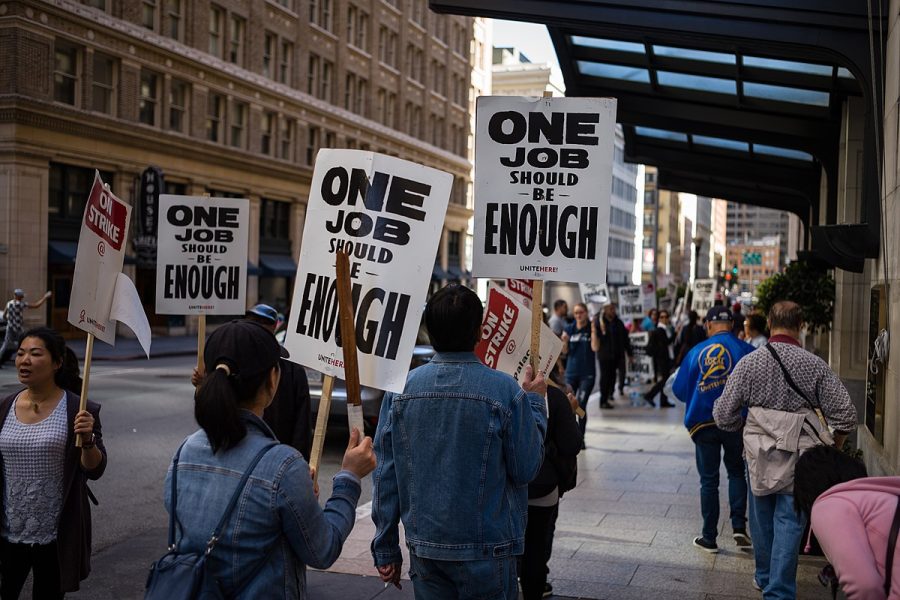Despite a strong showing of holiday sales numbers, the stock market has continued to fluctuate recently after the national unemployment rate was released on Dec. 2, reaching 9.8 percent. The number is up from 9.3 percent in November, according to the U.S. Department of Labor.
The Dow Jones dropped just over 16 points after it was announced that 39,000 jobs had been created nationwide in the month of November. Although this is still a positive sign, economists were predicting that between 145,000 and 165,000 jobs would be created.
This announcement came at a bad, time as the Dow Jones Industrial Average had been on the rise due to strong retail sales reports from the month of November. Of the American retail conglomerates reporting gains, Abercrombie & Fitch Co. and Target Corp. are furthest in the black. It appears that after scrimping and saving through the recession, consumers are ready to treat themselves.
Black Friday, in which some stores opened their doors as early as 4 a.m. this year, was extremely profitable, as Reuters News is reporting a 6 percent sales increase from last year. To increase sales this year, Target offered a 5 percent refund for any credit card purchase and Wal-Mart agreed to match the prices of its competitors.
Americans are willing to spend big for a good deal.
The National Association of Realtors also reported an increase of 10.4 percent for the pending-home-sales index for the month of October.
Although the state of the European economy remains unclear, the Euro appears to have stabilized after the European Central Bank (ECB) reaffirmed its commitment to buy the government bonds of fledgling nations, which has had a temporary stabling effect on stocks. After granting Ireland an 85 billion Euro bailout, the European Union denied Portugal and Spain a gigantic 750 billion Euro emergency fund, instead deferring the struggling nations to the ECB for assistance.
Wall Street has received good news from Washington, where after a tense weekend of rare overtime sessions, Senate Republicans and President Barack Obama reached an agreement on Monday to extend the George W. Bush tax cuts for the next two years.
Republicans had been thwarting everyone of Obama’s previous attempts to extend the tax cuts for middle class families while suspending those for households having an annual income of more than $250,000.
The compromise came after Republicans agreed to renew Federal unemployment benefits, which were set to expire in the next three months. Along with a pay-roll tax reduction of 2 percent for Federal Social Security tax, Obama announced that the cuts will prevent a tax increase of around $3,000 for the typical family.
“It’s not perfect, but this compromise is an essential step on the road to recovery,” Obama said of the compromise. In a message delivered to his constituency, Obama also vowed to continue fighting to repeal tax cuts for the wealthy, stating, “I’m confident that as we make the decisions to cut the deficit it will become apparent that we cannot continue to extend the tax cuts to the wealthiest Americans a day longer.”
Senator Chuck Schumer (D-NY.) represents fellow Democrats who had very little interest in compromising with Republicans, stating that they represented the interests of “millionaires and billionaires.”
Senate Republicans highlight the 9.8 percent unemployment rate as proof that taxes need to be kept low. Investors have been worried that uncertainty over tax rates would cause instability in the stock market and a decline in consumer spending.
It appears that Obama is now willing to act as the mediator between both sides of the isle, stating that all Americans, now more than ever, need “the peace of mind that their taxes will not go up.”
Peace of mind is what everybody needs this holiday season, but it may not come with a new Xbox 360 Kinect. However, it would sure help investors on Wall Street who are hoping that Americans continue to do what they do best: spend money.










